Items
Array is exactly
Professors
-
Interview: Amutah, Ndidi, 2016Ndidi Amutah was born in Trenton, New Jersey, in 1981 to Nigerian parents. Dr. Amutah grew up in Trenton and graduated from Trenton Central High School in 1999. She attended Livingston College at Rutgers, where she was active in the Livingston College Governing Association. After graduating from Livingston in 2003 with a B.A. in African Studies and a B.S. in Public Health, she earned a Master's in Public Health at George Washington University. Dr. Amutah attended the University of Maryland, College Park and studied maternal child health for her Ph.D. Dr. Amutah completed a Kellogg Foundation postdoctoral fellowship, served as a professor at Montclair State University, and then became a professor of public health and community medicine at the Tufts University School of Medicine.
-
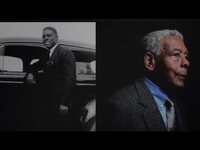 Interview: Brown, William Neal, 2005 Dr. Brown was born in Warrenton, Georgia, in 1919. He grew up in Aliquippa, Pennsylvania as the oldest of six siblings. He attended Hampton Institute and graduated in 1941 with a English and History major. A volunteer for the Army Air Force, he attended Officer Candidate School in Miami Beach and then volunteered to be trained at Tuskegee Air Field. He served as a special services officer with the 618th Bomb Squadron in the American Theater of Operations. After the war he attended Columbia University with the help of the GI Bill and he graduated in 1950. He was hired as the first African-American Professor at Rutgers University in 1956. He worked at the School of Social Work for 33 years. There were many highlights of Dr. Brown’s Academic career, but one that especially stands out was his debate at Rutgers with Malcolm X at the Rutgers School of Pharmacy.
Interview: Brown, William Neal, 2005 Dr. Brown was born in Warrenton, Georgia, in 1919. He grew up in Aliquippa, Pennsylvania as the oldest of six siblings. He attended Hampton Institute and graduated in 1941 with a English and History major. A volunteer for the Army Air Force, he attended Officer Candidate School in Miami Beach and then volunteered to be trained at Tuskegee Air Field. He served as a special services officer with the 618th Bomb Squadron in the American Theater of Operations. After the war he attended Columbia University with the help of the GI Bill and he graduated in 1950. He was hired as the first African-American Professor at Rutgers University in 1956. He worked at the School of Social Work for 33 years. There were many highlights of Dr. Brown’s Academic career, but one that especially stands out was his debate at Rutgers with Malcolm X at the Rutgers School of Pharmacy. -
 Interview: Busia, Abena, 2015 Founding member of the Center for Women's Global Leadership and Center for African Studies, Abena Busia is an Associate Professor in the Department of Women's and Gender Studies and the Department of English at Rutgers. She is also co-director and co-editor of the groundbreaking Women Writing Africa Project, a multi-volume anthology published by the Feminist Press at CUNY. Busia articulates the significance of communities and leadership at Rutgers and describes negotiating a space within Rutgers to consider women's experiences, blackness, and African womanness. She emphasizes the value of a single-sex education and describes Douglass as a place for nurturing women's leadership.
Interview: Busia, Abena, 2015 Founding member of the Center for Women's Global Leadership and Center for African Studies, Abena Busia is an Associate Professor in the Department of Women's and Gender Studies and the Department of English at Rutgers. She is also co-director and co-editor of the groundbreaking Women Writing Africa Project, a multi-volume anthology published by the Feminist Press at CUNY. Busia articulates the significance of communities and leadership at Rutgers and describes negotiating a space within Rutgers to consider women's experiences, blackness, and African womanness. She emphasizes the value of a single-sex education and describes Douglass as a place for nurturing women's leadership. -
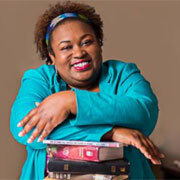 Interview: Cooper, Brittney, 2015 Brittney Cooper is Associate Professor of Women’s and Gender Studies and Africana Studies at Rutgers University. She is a Black feminist theorist who specializes in the study of Black women’s intellectual history, Hip Hop generation feminism, and race and gender representation in popular culture. Dr. Cooper is also a sought-after public speaker and commentator, her work and words have appeared in the New York Times, the Washington Post, TV Guide, the Los Angeles Times, MSNBC’s Melissa Harris-Perry Show, All In With Chris Hayes, Disrupt with Karen Finney, and Third Rail on Al-Jazeera America, among many others. She is also a co-founder of the Crunk Feminist Collective, a popular feminist blog. Dr. Brittney Cooper is a proud alumna of Howard University (class of 2002) and a proud native of North Louisiana. In this interview, Dr. Cooper speaks about her day-to-day work as an Assistant Professor in the Women’s and Gender Studies and Africana Studies departments. Including her work as a “hip hop feminist” and the book she had just finished at the time "Race Women: Gender and the Making of a Black Public Intellectual Tradition"(published as: "Beyond Respectability: The Intellectual Thought of Race Women"). She continues with speaking about her experiences as a Black Woman in her field and the challenges she faces, the different types of activism she partakes in, and ends the interview speaking about her college experience and the lessons she has learned.
Interview: Cooper, Brittney, 2015 Brittney Cooper is Associate Professor of Women’s and Gender Studies and Africana Studies at Rutgers University. She is a Black feminist theorist who specializes in the study of Black women’s intellectual history, Hip Hop generation feminism, and race and gender representation in popular culture. Dr. Cooper is also a sought-after public speaker and commentator, her work and words have appeared in the New York Times, the Washington Post, TV Guide, the Los Angeles Times, MSNBC’s Melissa Harris-Perry Show, All In With Chris Hayes, Disrupt with Karen Finney, and Third Rail on Al-Jazeera America, among many others. She is also a co-founder of the Crunk Feminist Collective, a popular feminist blog. Dr. Brittney Cooper is a proud alumna of Howard University (class of 2002) and a proud native of North Louisiana. In this interview, Dr. Cooper speaks about her day-to-day work as an Assistant Professor in the Women’s and Gender Studies and Africana Studies departments. Including her work as a “hip hop feminist” and the book she had just finished at the time "Race Women: Gender and the Making of a Black Public Intellectual Tradition"(published as: "Beyond Respectability: The Intellectual Thought of Race Women"). She continues with speaking about her experiences as a Black Woman in her field and the challenges she faces, the different types of activism she partakes in, and ends the interview speaking about her college experience and the lessons she has learned. -
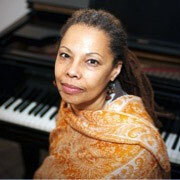 Interview: Cross, June, 2015 June Cross is a writer and documentary producer who covers the intersection of poverty, race, and politics in the United States. She has been a Professor of Journalism at Columbia University’s Graduate School of Journalism in New York since 2006. There, she founded and directed the program in Journalistic Documentary at the Columbia University Graduate School of Journalism. At the time of this interview, Cross had just finished her Emmy-nominated documentary Wihemina’s War which follows a Southern grandmother who struggles to help her granddaughter survive the health risks and social stigma of living with HIV in South Carolina. She has been a fellow at Columbia’s Institute for Research in Afro-American Studies, at Carnegie-Mellon University’s School of Urban and Public Affairs, and the W.E.B. DuBois Institute for Afro-American Studies at Harvard. In this interview, Cross speaks about her childhood growing up in Atlantic City in the 1950s. She then speaks about her painful College experience and the impact the women in her life had on Cross’s goals and sense of self. The interview closes with Cross speaking about her experience in journalism, her experience as a professor, and advice for women who plan to have careers in media.
Interview: Cross, June, 2015 June Cross is a writer and documentary producer who covers the intersection of poverty, race, and politics in the United States. She has been a Professor of Journalism at Columbia University’s Graduate School of Journalism in New York since 2006. There, she founded and directed the program in Journalistic Documentary at the Columbia University Graduate School of Journalism. At the time of this interview, Cross had just finished her Emmy-nominated documentary Wihemina’s War which follows a Southern grandmother who struggles to help her granddaughter survive the health risks and social stigma of living with HIV in South Carolina. She has been a fellow at Columbia’s Institute for Research in Afro-American Studies, at Carnegie-Mellon University’s School of Urban and Public Affairs, and the W.E.B. DuBois Institute for Afro-American Studies at Harvard. In this interview, Cross speaks about her childhood growing up in Atlantic City in the 1950s. She then speaks about her painful College experience and the impact the women in her life had on Cross’s goals and sense of self. The interview closes with Cross speaking about her experience in journalism, her experience as a professor, and advice for women who plan to have careers in media. -
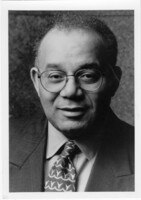 Interview: Curvin, Robert, 1991 Robert Curvin, a retired U.S Army 1st Lieutenant, completed his undergraduate degree at Rutgers-Newark in 1960. He later went on to obtain a master's degree at Rutgers University School of Social Work and a Ph.D. in political science at Princeton University in 1975. At Rutgers-Newark, Curvin served as an Adjunct Professor in the political science department and served as a faculty advisor to the Black Organization of Students (BOS).
Interview: Curvin, Robert, 1991 Robert Curvin, a retired U.S Army 1st Lieutenant, completed his undergraduate degree at Rutgers-Newark in 1960. He later went on to obtain a master's degree at Rutgers University School of Social Work and a Ph.D. in political science at Princeton University in 1975. At Rutgers-Newark, Curvin served as an Adjunct Professor in the political science department and served as a faculty advisor to the Black Organization of Students (BOS). -
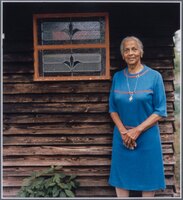 Interview: Edwards, Lena Frances, 1982 Lena Frances Edwards, M.D., (1900-1986) was an African American obstetrician and gynecologist who received the Presidential Medal of Freedom for her service in 1964. Dr. Edwards graduated from Howard University College of Medicine in 1924. For most of her 59 years of professional life, she practiced medicine in Jersey City, New Jersey, both in private practice and on the Margaret Hague Maternity Hospital staff. During her years in Jersey City, Dr. Edwards started a chapter of College Women National, the Jersey City College Women, an organization that raised money to give tuition to women who wanted to earn an education. Dr. Edwards taught at Howard University from 1954 to 1960, following in the footsteps of her father who taught at Howard University School of Dentistry. After her time at Howard, she began an endowment scholarship fund for Black women from poor backgrounds. Dr. Edwards was interviewed as part of the Medical History Society of New Jersey-Oral History Program's project "The Health Professions in New Jersey During the Great Depression, 1929-1939." The interview was conducted on December 7, 1982, at the Jewish Hospital, Jersey City, by Linda Holmes, who was a professor at UMDNJ-School of Health-Related Professions. The interview focuses on Dr. Edwards' general and obstetric practice during the 1920s and 1930s largely centered on the African American, immigrant, and blue-collar populations. The conversation also addresses her philanthropic efforts throughout her life. In addition to this oral history interview housed at Rutgers, researchers interested in Dr. Edwards's life and work in New Jersey are also encouraged to consult the oral history recordings and transcripts on file at Harvard University's Schlesinger Library, where Dr. Edwards was interviewed in 1977 as part of the Black Women Oral History Project. The Schlesinger Library has digitized the transcripts and audio recordings from that project, and they can be found on the library's website. Additionally, a biographical book about Dr. Edwards was published in 1979, titled Medicine, Motherhood and Mercy: The Story of a Black Woman Doctor, written by Sister M. Anthony Scally.
Interview: Edwards, Lena Frances, 1982 Lena Frances Edwards, M.D., (1900-1986) was an African American obstetrician and gynecologist who received the Presidential Medal of Freedom for her service in 1964. Dr. Edwards graduated from Howard University College of Medicine in 1924. For most of her 59 years of professional life, she practiced medicine in Jersey City, New Jersey, both in private practice and on the Margaret Hague Maternity Hospital staff. During her years in Jersey City, Dr. Edwards started a chapter of College Women National, the Jersey City College Women, an organization that raised money to give tuition to women who wanted to earn an education. Dr. Edwards taught at Howard University from 1954 to 1960, following in the footsteps of her father who taught at Howard University School of Dentistry. After her time at Howard, she began an endowment scholarship fund for Black women from poor backgrounds. Dr. Edwards was interviewed as part of the Medical History Society of New Jersey-Oral History Program's project "The Health Professions in New Jersey During the Great Depression, 1929-1939." The interview was conducted on December 7, 1982, at the Jewish Hospital, Jersey City, by Linda Holmes, who was a professor at UMDNJ-School of Health-Related Professions. The interview focuses on Dr. Edwards' general and obstetric practice during the 1920s and 1930s largely centered on the African American, immigrant, and blue-collar populations. The conversation also addresses her philanthropic efforts throughout her life. In addition to this oral history interview housed at Rutgers, researchers interested in Dr. Edwards's life and work in New Jersey are also encouraged to consult the oral history recordings and transcripts on file at Harvard University's Schlesinger Library, where Dr. Edwards was interviewed in 1977 as part of the Black Women Oral History Project. The Schlesinger Library has digitized the transcripts and audio recordings from that project, and they can be found on the library's website. Additionally, a biographical book about Dr. Edwards was published in 1979, titled Medicine, Motherhood and Mercy: The Story of a Black Woman Doctor, written by Sister M. Anthony Scally. -
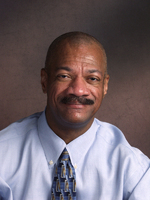 Interview: Glasker, Wayne, 2022 This interview was recorded as part of the Black Camden Oral History Project. Dr. Wayne Glasker is Emeritus Professor of History at Rutgers University–Camden. He is the author of the book Black Students in the Ivory Tower: African American Student Activism at the University of Pennsylvania, 1967-1990. He was born in 1957 in Philadelphia, Pennsylvania, to Mary Johnson and Morris Glasker. His parents were part of the Great Migration and had moved from Virginia to Pennsylvania in search of better work opportunities. In these interviews, Glasker discusses his childhood in Philadelphia and his experiences at the University of Pennsylvania from 1974 to 1994. Glasker earned his Bachelor’s degree in History and Sociology in 1980. He attended graduate school at UPenn as well, earning a PhD in History in 1994. During this time, he was active in the Black Student Union on campus, student government, and in the anti-apartheid movement. He discusses his experiences as a student activist and student government leader as well as the challenges on campus for African American students. In 1990 Glasker began teaching African American history at Rutgers–Camden. He served as director of the Africana Studies program from 1998 to 2011. He describes race relations on campus in the 1990s and student activism at Rutgers. He emphasizes the list of demands from Black student activists following the occupation of the Campus Center at Rutgers–Camden in 1969. He also describes his efforts to increase civic engagement in his classes.
Interview: Glasker, Wayne, 2022 This interview was recorded as part of the Black Camden Oral History Project. Dr. Wayne Glasker is Emeritus Professor of History at Rutgers University–Camden. He is the author of the book Black Students in the Ivory Tower: African American Student Activism at the University of Pennsylvania, 1967-1990. He was born in 1957 in Philadelphia, Pennsylvania, to Mary Johnson and Morris Glasker. His parents were part of the Great Migration and had moved from Virginia to Pennsylvania in search of better work opportunities. In these interviews, Glasker discusses his childhood in Philadelphia and his experiences at the University of Pennsylvania from 1974 to 1994. Glasker earned his Bachelor’s degree in History and Sociology in 1980. He attended graduate school at UPenn as well, earning a PhD in History in 1994. During this time, he was active in the Black Student Union on campus, student government, and in the anti-apartheid movement. He discusses his experiences as a student activist and student government leader as well as the challenges on campus for African American students. In 1990 Glasker began teaching African American history at Rutgers–Camden. He served as director of the Africana Studies program from 1998 to 2011. He describes race relations on campus in the 1990s and student activism at Rutgers. He emphasizes the list of demands from Black student activists following the occupation of the Campus Center at Rutgers–Camden in 1969. He also describes his efforts to increase civic engagement in his classes. -
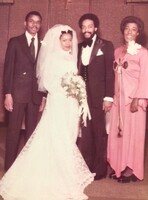 Interview: Graham, Patricia, 2015 Patricia Graham was born in Saluda, South Carolina, on March 9, 1949. She grew up in Philadelphia and then moved to New Jersey during high school. Dr. Graham graduated from West Side High School in Newark in 1966. She attended Essex County Community College and then Rutgers-Newark, before transferring to Livingston College at Rutgers-New Brunswick. During college, Dr. Graham participated in the Volunteers in Service to America (VISTA) program. Majoring in urban studies and secondary education, Dr. Graham graduated from Livingston College in 1972. She went on to earn her Master's degree in education at Antioch College and Ed.D. at the University of Massachusetts, Amherst. From 1977 to 2013, Dr. Graham served in various positions at East Stroudsburg University, where she is now a professor emeritus.
Interview: Graham, Patricia, 2015 Patricia Graham was born in Saluda, South Carolina, on March 9, 1949. She grew up in Philadelphia and then moved to New Jersey during high school. Dr. Graham graduated from West Side High School in Newark in 1966. She attended Essex County Community College and then Rutgers-Newark, before transferring to Livingston College at Rutgers-New Brunswick. During college, Dr. Graham participated in the Volunteers in Service to America (VISTA) program. Majoring in urban studies and secondary education, Dr. Graham graduated from Livingston College in 1972. She went on to earn her Master's degree in education at Antioch College and Ed.D. at the University of Massachusetts, Amherst. From 1977 to 2013, Dr. Graham served in various positions at East Stroudsburg University, where she is now a professor emeritus. -
 Interview: Morrison Rodriguez, Barbara, 2015 Dr. Barbara Morrison-Rodriguez was born in Washington, DC in 1947. She graduated from McKinley Technical High School in Washington, DC, and went on to Douglass College. Barbara graduated with a degree in Sociology. In 1979, she earned a Master's Degree in Social Welfare Research from Columbia University's School of Social Welfare and later, a PhD in Social Welfare Research and Evaluation.
Interview: Morrison Rodriguez, Barbara, 2015 Dr. Barbara Morrison-Rodriguez was born in Washington, DC in 1947. She graduated from McKinley Technical High School in Washington, DC, and went on to Douglass College. Barbara graduated with a degree in Sociology. In 1979, she earned a Master's Degree in Social Welfare Research from Columbia University's School of Social Welfare and later, a PhD in Social Welfare Research and Evaluation. -
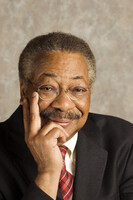 Interview: Price, Clement A., 1991 Clement A. Price was born in Washington, D.C., in 1945 and attended the D.C. public schools. He received his bachelor's and master's degrees from University of Bridgeport. After a year teaching African American history at Essex County College, Price joined the faculty at Rutgers-Newark in 1969, where he was initially hired as a part-time instructor. Soon after his appointment in Newark, he enrolled in the history Ph.D. program at Rutgers-New Brunswick, which he completed in 1975. Dr. Price taught at Rutgers-Newark for 45 years and established himself as one of the university's most esteemed faculty members. He is the recipient of numerous awards and honors, including serving as chair of President Obama's transition team for the National Endowment for the Humanities and vice chair of the Advisory Council on Historic Preservation. He has played leadership roles with many organizations in New Jersey, including the New Jersey State Council on the Arts, the Fund for New Jersey, the Newark Public Schools, the Newark Black Film Festival, the Newark Public Library, the Newark Education Trust, and the Save Ellis Island Foundation. Over the years, Dr. Price has published widely in African American History, Urban American History, and American Cultural Policy. He continued teaching history at Rutgers-Newark as Board of Governors Distinguished Service Professor until his death in 2014. The Clement A. Price Institute on Ethnicity, Culture and the Modern Experience at Rutgers-Newark was named in his honor.
Interview: Price, Clement A., 1991 Clement A. Price was born in Washington, D.C., in 1945 and attended the D.C. public schools. He received his bachelor's and master's degrees from University of Bridgeport. After a year teaching African American history at Essex County College, Price joined the faculty at Rutgers-Newark in 1969, where he was initially hired as a part-time instructor. Soon after his appointment in Newark, he enrolled in the history Ph.D. program at Rutgers-New Brunswick, which he completed in 1975. Dr. Price taught at Rutgers-Newark for 45 years and established himself as one of the university's most esteemed faculty members. He is the recipient of numerous awards and honors, including serving as chair of President Obama's transition team for the National Endowment for the Humanities and vice chair of the Advisory Council on Historic Preservation. He has played leadership roles with many organizations in New Jersey, including the New Jersey State Council on the Arts, the Fund for New Jersey, the Newark Public Schools, the Newark Black Film Festival, the Newark Public Library, the Newark Education Trust, and the Save Ellis Island Foundation. Over the years, Dr. Price has published widely in African American History, Urban American History, and American Cultural Policy. He continued teaching history at Rutgers-Newark as Board of Governors Distinguished Service Professor until his death in 2014. The Clement A. Price Institute on Ethnicity, Culture and the Modern Experience at Rutgers-Newark was named in his honor. -
Interview: Ramsey, James H., 1992James Ramsey holds a bachelor's degree from Tennessee State University and a master's in education from Brown University. He began his career as a biology teacher in Cedar Grove, New Jersey, and joined Rutgers-Newark as a professor of biology in the Academic Foundations Department in 1969; he was appointed its director in 1970. The Academic Foundations Department provided remedial programs for students who were underprepared for college work. Ramsey was key in developing the center and making it an integral part of the university. Ramsey later served as mayor of Montclair, New Jersey, from 1984-1986 and on the Montclair board of education. He has also been active in numerous civic affairs in the City of Newark.
-
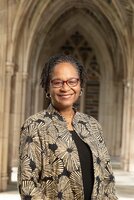 Interview: Wall, Cheryl A., 2015 Cheryl Wall (1948-2020) was a Board of Governors Zora Neale Hurston Distinguished Professor of English and former Chair of the English Department. Wall was an author and a specialist in Black women's writing, the Harlem Renaissance, and Zora Neale Hurston. She was a co-chair of the President's Council on Institutional Diversity and Equity. Joining Douglass College in 1972 as an assistant instructor, in her interview Wall described her role in the development of the college and its legacy today. She discussed the intrinsic value of the humanities in the context of a liberal arts education, student activism on campus, and the evolution of the Douglass Woman.
Interview: Wall, Cheryl A., 2015 Cheryl Wall (1948-2020) was a Board of Governors Zora Neale Hurston Distinguished Professor of English and former Chair of the English Department. Wall was an author and a specialist in Black women's writing, the Harlem Renaissance, and Zora Neale Hurston. She was a co-chair of the President's Council on Institutional Diversity and Equity. Joining Douglass College in 1972 as an assistant instructor, in her interview Wall described her role in the development of the college and its legacy today. She discussed the intrinsic value of the humanities in the context of a liberal arts education, student activism on campus, and the evolution of the Douglass Woman. -
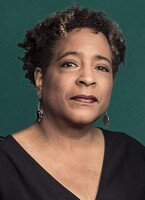 Interview: White, Deborah Gray, 2016 Deborah Gray White is the Board of Governors Distinguished Professor of History and Professor of History at Rutgers University. During her forty years at Rutgers, she has not only been a professor but also the co-director of "The Black Atlantic: Race, Nation and Gender" project at the Rutgers Center for Historical Analysis (1997-99), a research professor at the Rutgers Institute for Research on Women (1999-2000), and chair of the history department (2000-03). As an Americanist who specializes in African American and American Women’s history, Professor White is especially interested in issues of identity and the intersection of race, class, gender, and sexuality. In this interview, Dr. White begins by talking about the influential women in her childhood. Then the interview transitions to her work as a historian and what her title at Rutgers means. She also discusses her work directing a major institutional research project that uncovered the history of enslaved and disenfranchised populations in Rutgers history. The project resulted in the publication of the book Scarlet and Black: Slavery and Dispossession in Rutgers History. The interview ends with her advice for young Black women on how to obtain the type of success Dr. White has achieved.
Interview: White, Deborah Gray, 2016 Deborah Gray White is the Board of Governors Distinguished Professor of History and Professor of History at Rutgers University. During her forty years at Rutgers, she has not only been a professor but also the co-director of "The Black Atlantic: Race, Nation and Gender" project at the Rutgers Center for Historical Analysis (1997-99), a research professor at the Rutgers Institute for Research on Women (1999-2000), and chair of the history department (2000-03). As an Americanist who specializes in African American and American Women’s history, Professor White is especially interested in issues of identity and the intersection of race, class, gender, and sexuality. In this interview, Dr. White begins by talking about the influential women in her childhood. Then the interview transitions to her work as a historian and what her title at Rutgers means. She also discusses her work directing a major institutional research project that uncovered the history of enslaved and disenfranchised populations in Rutgers history. The project resulted in the publication of the book Scarlet and Black: Slavery and Dispossession in Rutgers History. The interview ends with her advice for young Black women on how to obtain the type of success Dr. White has achieved.
